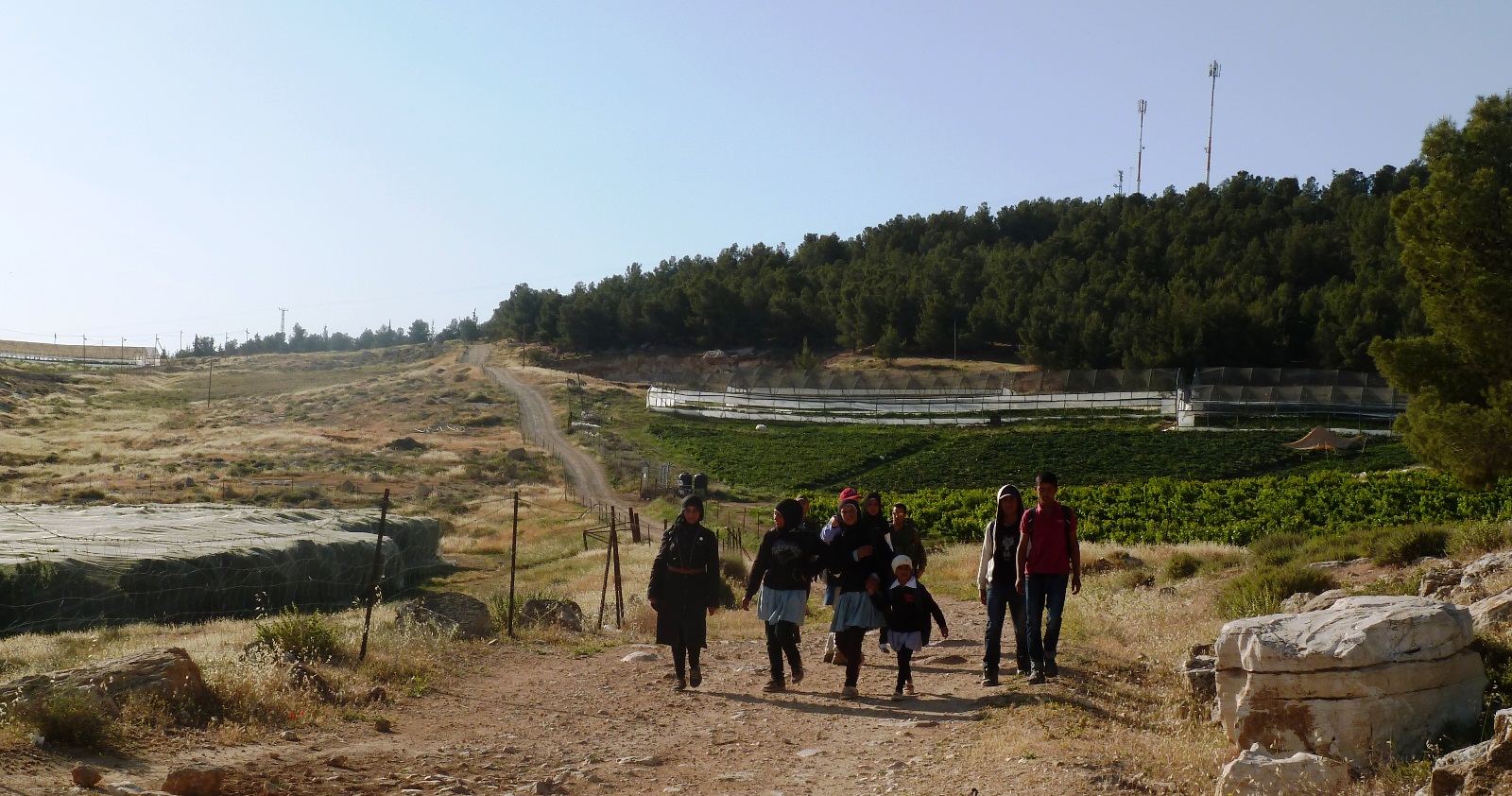CPTnet
2 May 2014
AT-TUWANI: Still in need of water
by Miriam Clark
[Note: The following blog posting by a Palestine CPTer has been edited for length. The original is available on the CPT Palestine Blog. According to
the Fourth Geneva Convention, the Hague Regulations, the International Court of
Justice, and several United Nations resolutions, all Israeli settlements and
outposts in the Occupied Palestinian Territories are illegal. Most
settlement outposts, including Havat Ma’on (Hill 833), are considered illegal
also under Israeli law.]
It’s
four and a half years since I last worked in the South Hebron Hills village of
at-Tuwani, so I was glad to go for an overnight stay. There have been many changes since my
last stint there with Christian Peacemaker Teams. Of course, babies have been born, children have grown up,
young people have married, and adults have aged.
 |
|
| At-Tuwani’s school now has an additional floor. |
There have been some positive changes for the village. It received a master plan some years ago
from the Israeli authorities and so villagers are able to build and extend
homes within the boundaries it specifies.
The school now has an additional floor and is safe from demolition (with
which the Israeli authorities threatened it as soon as it was first built), so
now the village school is able to take pupils from the beginning of primary
school right through to the end of secondary school. The village’s clinic is also safe from demolition. There is mains electricity [an
electrical grid] that the villagers attribute partly to Tony Blair’s visit to
Tuwani in 2009, during which he described electricity as a human right, and the
villagers have received permission to connect to the water main as well.
As one young man said to me, ‘Tuwani is a city now, Miriam: electricity, water
. . .’
But Tuwani is not the only place that is growing. So is Ma’on, the Israeli settlement up the hill, established
in 1981 on the Palestinian villagers’ land. Early in 2004, the settlers took more village land to
establish an orchard in the wadi between the settlement and Tuwani. Some years ago they installed
polytunnels on more village land below the outpost of Havat Ma’on and houses, and caravans
gradually crept down the hillside, taking more and more land.
But
on the morning I went to meet the children from Tuba and Maghayir al Abeed making
their way to school in Tuwani, I was shocked to see the further encroachment.
Below
Ma’on, the settlers have built a new road and fence and settlers have doubled
the area of the polytunnels.
Below
the polytunnels, they have planted another large orchard, which extends up the
hill beside the polytunnels towards Havat Ma’on. Nine years ago I accompanied a Palestinian shepherd grazing
her sheep on her land on that very spot; that land is now lost to that family.
Sometimes we see media reports of settlement expansion describing x number of
new units planned or built. But we
don’t hear about the kind of thing that is happening by Tuwani: the building of
a new road, the installation of a new fence, the installation of polytunnels,
the planting of trees. And yet, in
Tuwani, these changes are gradually leading to the loss of the village’s land,
resources, employment opportunities, and income. It is because of the villagers’ sumud (steadfastness) that
they are not leading to the departure of the villagers and the loss of the
village altogether.
The people of Tuwani are committed
to nonviolent resistance to the Israeli occupation. This commitment has been maintained in the face of tremendous
provocation and has subjected them to arrests and assaults. The leader of popular resistance in the
village told me once, ‘Non-violence is like a tree. It needs to be watered.’ The people of Tuwani need that kind of water even more than
the water that now flows from their taps.
 |
|
| Children walking to school in Tuwani from Tuba and Mighayer Al Abeed. Ma’on is on the hill on the right. Note the extensive polytunnels and the new orchard behind the children. There is an extensive area of fruit trees out of view to the right. |



